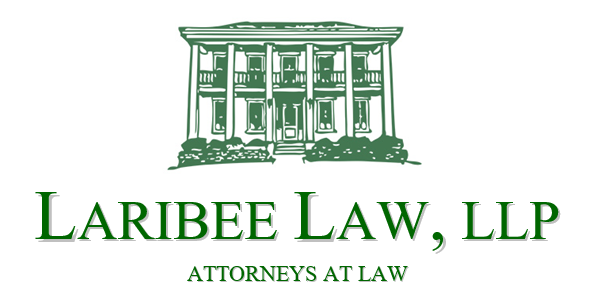Guardianships in Ohio - the Basics
Michael L. Laribee, Esq.
The purpose of a guardianship is to protect the rights of a person who is unable to manage his or her own affairs due to mental illness, physical illness, disability, or chronic substance abuse. That person is known as a ward. Guardians are competent adults who serve to protect the ward’s physical health and finances. In Ohio, county probate courts have exclusive jurisdiction over guardianship cases and have the sole authority to appoint and remove guardians. The probate court's primary responsibility is to ensure that the person appointed will serve the ward’s best interest.
At all times, the probate court is the superior guardian of a ward and oversees all actions of the guardian. Each type of guardianship requires an expert evaluation signed by a physician or a licensed clinical psychologist stating the ward’s condition and the need for a guardianship. The probate court may remove any guardian for neglect of duty, incompetency, fraudulent conduct, or failing to follow its orders.
There are four basic types of guardianships in Ohio: guardianship of the person, guardianship of the estate, limited guardianship, and emergency guardianship.
Guardianship of the person:
The guardian of the person is responsible for the ward's physical, moral, and mental well-being. This includes managing the ward’s medical care, diet, and physical safety. The guardian must ensure that the ward has the comfort and care the ward can afford. A guardian of the person also serves as guardian of the ward’s minor children if no other guardian has been appointed for them.
The guardian of the person must submit regular reports to the probate court setting forth substantial changes in the ward’s physical or mental condition, the date that the ward last saw a physician, and grounds to continue the guardianship.
Guardianship of the estate:
A guardian of the estate is appointed to manage and conserve the ward’s property and assets in the ward's best interest. The guardian must deposit all funds of the ward into an account in the name of the guardian as fiduciary. He or she must then file with the probate court a full inventory of the ward's real and personal property, including value. They must pay the ward’s debts out of the ward’s estate, collect all debts owed to the ward, invest the ward’s funds according to legal guidelines, and defend any lawsuits against the ward. The guardian may also initiate lawsuits for the ward when it is in the ward’s best interests. The guardian is not expected to spend any of the guardian's personal assets for the benefit of the ward.
Guardians of the estate must also submit regular accounts with the probate court listing all receipts and disbursements from the ward’s estate and all funds, assets and investments which remain in the guardian’s control at the end of the accounting period.
The guardian must preserve the assets of the estate. Therefore, he or she may not give property away or release any claim of the ward without adequate consideration. The guardian is liable to the ward for damages resulting from the wrongful use of property or any loss suffered by the ward’s estate that results from the guardian’s failure to exercise a reasonable degree of care. The guardian of the estate must execute a bond for the faithful performance of these obligations. At the termination of the guardianship, the guardian must render a final account and distribute the estate. The same individual may, in the probate court’s discretion, serve as both guardian of the person and estate. This allows the guardian to make nearly all decisions for the ward.
Limited Guardianship:
The probate court may appoint a guardian with specific, limited powers if it finds such an appointment to be in the best interest of the ward. The order of appointment will state the specific reasons for the limited guardianship and list the limited powers of the guardian. The court may appoint a limited guardian for a definite or indefinite period of time. The ward retains all of his or her rights in all areas which are not directly affected by the court order appointing the limited guardian.
Emergency Guardianship:
A probate court may appoint a guardian without prior notice to the ward and without a formal hearing when: 1) an emergency exists, and 2) a guardian is necessary to prevent injury to the ward or estate of the ward. The initial appointment of an emergency guardian may last for a maximum of seventy-two hours. The court may then extend an emergency guardianship up to an additional thirty days provided that it conducts a hearing after it notifies the ward and other interested parties.
It is important to consult with a trusted probate lawyer before proceeding with any guardianship action. The application process and accounting requirements are complicated. Also, there may be less restrictive alternatives to consider based on the individual’s condition and needs.
This article is intended to provide general information about the law. It is not intended to give legal advice. Readers are urged to seek advice from an attorney regarding their specific issues and rights.
Contact an attorney at Laribee Law, LLP, request more information about our legal services today.
Related law articles about gaurdianship:
- Who is a Suitable Guardian?
- Guardianships: How to nominate a guardian


